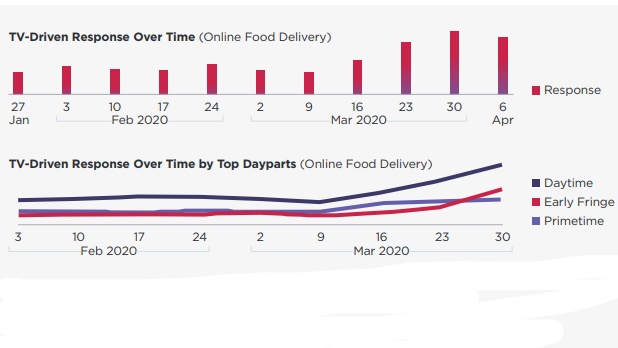Study Finds TV Ads Drive Web Business Amid COVID
Effectv and TVSquared define strategies for marketers during a crisis

The smarter way to stay on top of broadcasting and cable industry. Sign up below
You are now subscribed
Your newsletter sign-up was successful
With many retail outlets closed because of the COVID-19 pandemic a new study found that television advertising is effective at driving consumers to engage online.
The study, conducted by Effectv, the ad sales unit of Comcast Cable and attribution company TVSquared, found both short and long-term impacts of being on air.
“The study’s findings show just how critical it is for TV advertisers to be nimble and adaptive,” said Jo Kinsella, president, TVSquared. “Changing creatives to reflect what is happening in the world, and making data-backed adjustments to buys and schedules, are the two attributes that are consistent among the most successful advertisers – not only during times of crises, but always.”
The study, entitled The Halo Effect: TV Drives Digital, found that staying on air during a crisis can help maintain brand presence, triggering a “memory effect” among consumers. In the first quarter, advertisers that stayed on air rather than pulling their budgets, saw 23% more website visits over the next several weeks. Advertisers that stopped running TV ads saw web visits fall by 20%.
TV advertising had different impacts for different types of advertisers as the pandemic went on. If a brand had a direct to consumer offering, response rates were highest, with responses increasing 100% for e-commerce sites, 84% for online food delivery and 41% for online education.
Response rates for auto, insurance and travel advertisers we down as much a 80% compared to pre-pandemic levels.
Changing creative can have a big impact, but consistency counts ones an effective message is found. Between March and April, brands that ran COVID-19 messages on TV saw an average lift of 37%, compared to the 13% lift for advertisers that didn’t relate to the virtual.
The smarter way to stay on top of broadcasting and cable industry. Sign up below
Brands that were consistent with COVID-relevant messaging registered increases of 41% in immediate visitors. Advertisers with pandemic-related ads but inconsistent schedule endured a 31% drop in visitors.
“Since the pandemic has forced many consumers to move their shopping from physical stores to online channels, this study could not be more timely or valuable for marketers in terms of understanding the impact TV has on driving engagement,” said James Rooke, general manager, Effectv. “The results clearly show that TV advertising drives consumer action online and also provide insights into how data-driven strategies can maximize engagement during this unprecedented time for marketers.”
Jon has been business editor of Broadcasting+Cable since 2010. He focuses on revenue-generating activities, including advertising and distribution, as well as executive intrigue and merger and acquisition activity. Just about any story is fair game, if a dollar sign can make its way into the article. Before B+C, Jon covered the industry for TVWeek, Cable World, Electronic Media, Advertising Age and The New York Post. A native New Yorker, Jon is hiding in plain sight in the suburbs of Chicago.

